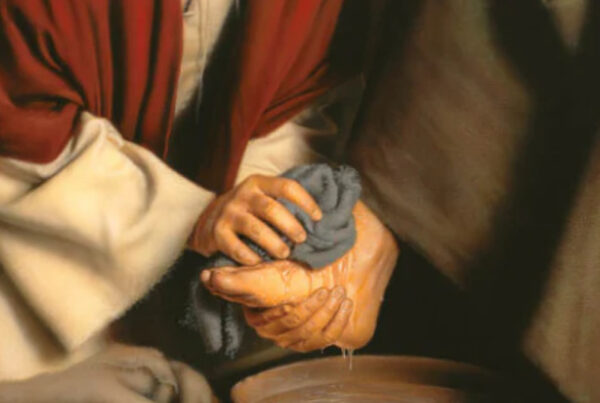Book of Habakkuk
Chapter 2
If you have been following along in the Journey for the last several months, then you have already read a good deal about what other prophets have said. If so, you are not surprised by the news that the Southern Kingdom of Judah would fall to the Babylonians. We might be tempted to react to Habakkuk’s message by thinking, “Yeah, uh-huh, I already know that.” Even so, we have come to understand that this was a critical time for the Israelites. Perhaps the more they heard the warning from multiple prophets, the more opportunities they would have had to turn back toward God: “Write down the revelation and make it plain on tablets so that a herald may run with it” (v.2). Because of our familiarity with these circumstances, other passages in the Book of Habakkuk stand out all the more.
In the first chapter, we have seen the intimate relationship that can exist between a follower of God and the Lord. Chapter Two opens with the conclusion of Habakkuk’s prayer from Chapter One. Whether the prophet went to a sacred place of prayer or the thick walls protecting the city to glimpse the conquering army (v.1), he placed himself in a position to wait for God to answer him. He knew his prayer was a complaint and truthfully called it what is was (v.1). Even so, he was sure the Lord would respond.
Habakkuk was right. The Lord indeed responded and, in a sense, comforted the prophet by letting him know that the plundering Babylonians would not be successful forever and that their own downfall was assured (vs.8,16,17). At the same time, He also confirmed that the Babylonians would indeed vanquish the Southern Kingdom of Judah: “For the revelation awaits an appointed time; it speaks of the end and will not prove false. Though it linger, wait for it; it will certainly come and will not delay” (v.3). What a curious, mind-bending statement. The appointed time for the end – this is most certain – it would both linger and not delay. What? It seems that God was saying that it would do both. In essence, He revealed that the timing may not have made sense to the prophet but that it was sure and it was in His hands. He was clear about what was essential for Habakkuk: he was to “wait for it.” God did not say exactly how long. Just wait. It would feel like it was not going to happen – linger – but it will certainly come. Wait. And wait some more. Indeed, we rarely if ever understand God’s timing. Even so, He asked His follower Habakkuk, one whom He loves and who loves Him in return, to trust Him, to wait for Him and what He would do. (If you missed Rod’s superb message on persistent faith and God’s timing or would like a refresher, please click on the link below.)
Praying, watching and waiting for God are ultimately all bound up in what we call “faith:” “…the righteous will live by his faith…” (v.4). One of the gems of Habakkuk is the reminder or perhaps even the discovery that what we commonly think of as a New Testament or New Covenant idea is actually deeply rooted in the Old Testament, in the Book of Habakkuk, to be precise. That scholar and lover of Jesus named Paul knew the Word of God. He understood that what the Lord proclaimed had great meaning for his contemporaries; as such, he quoted this passage to the followers of Jesus both in Rome and in Galatia (Romans 1:17, Galatians 3:11).
We, too, may turn to the Lord and put our faith in Him. This is not some nebulous faith that is a feeling that things will hopefully work out. God asks us to put our faith in Him specifically, in the Lord Almighty. He who can bring about justice, He who is powerful to rescue, He who knows each and every one of us, all of us, for who we are. He is worthy of our faith. And God is essentially asking us to trust Him. Will we? He is at work in this relationship that we have with Him, and faith is our part. What will we do?
Wait. Watch. Live by faith.
Key Verse(s):
“For the revelation awaits an appointed time; it speaks of the end and will not prove false. Though it linger, wait for it; it will certainly come and will not delay.” ~ Habakkuk 2:3
Questions:
- In what areas of your life do you struggle with God’s timing?
- What does “the righteous will live by faith” look like? What would it look like in your own life?
- What would help you to trust God the way Habakkuk did?



